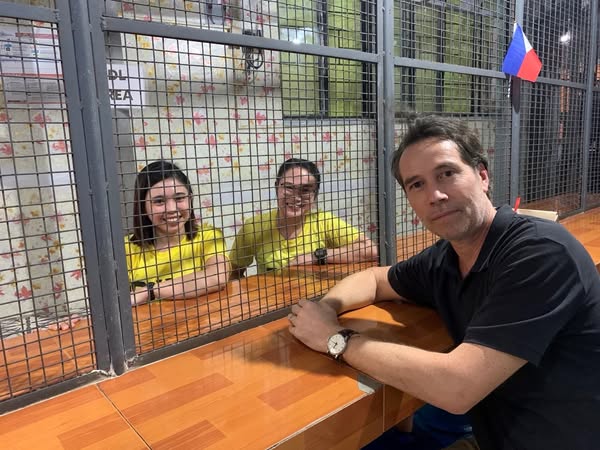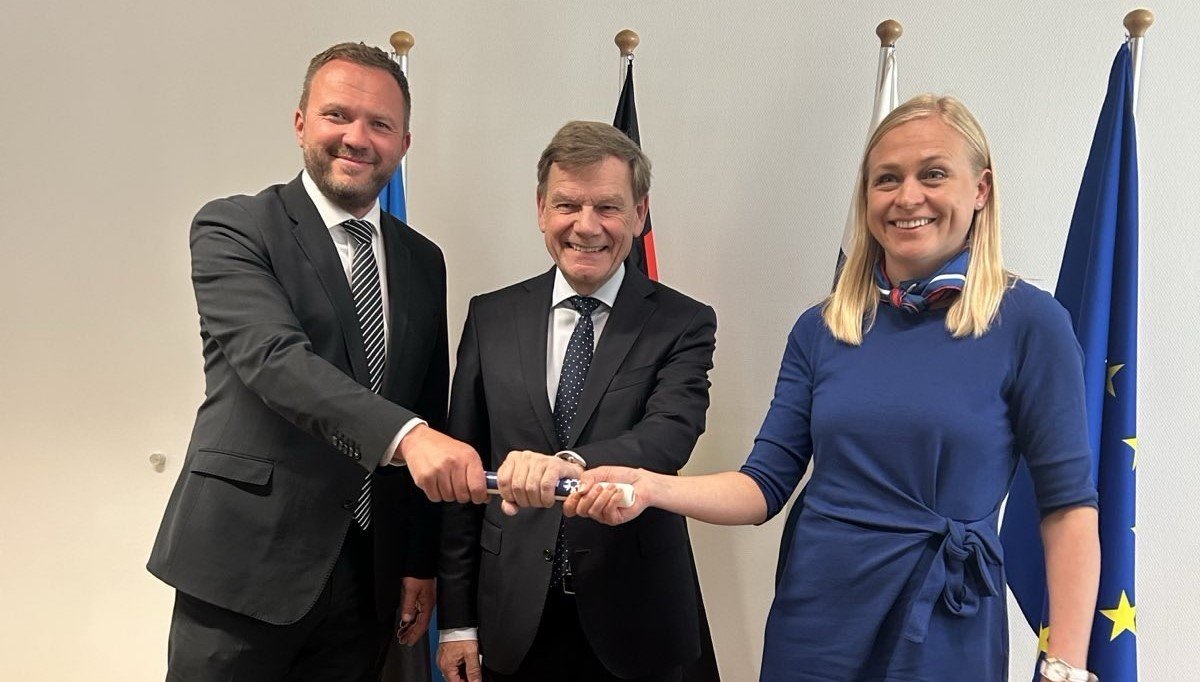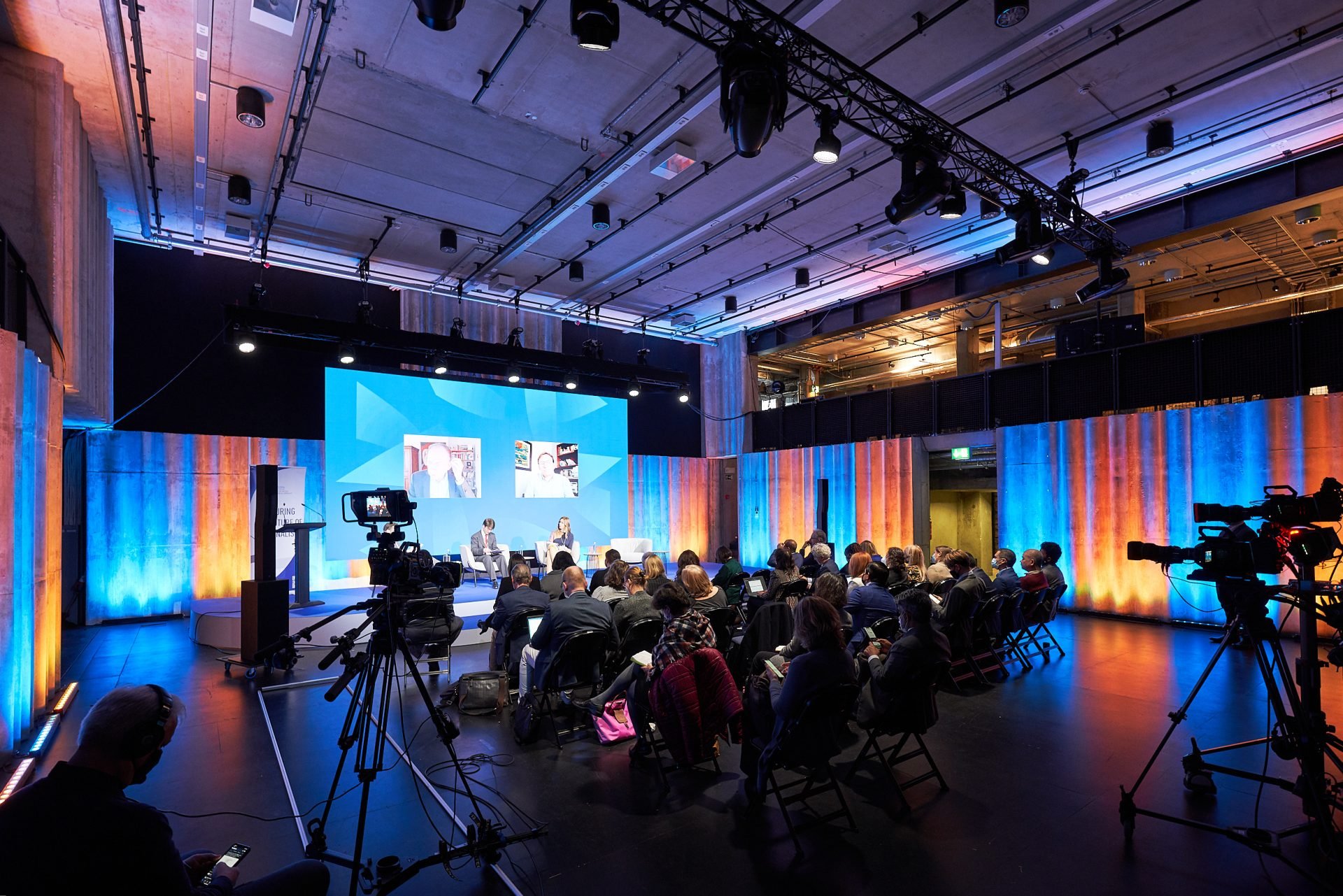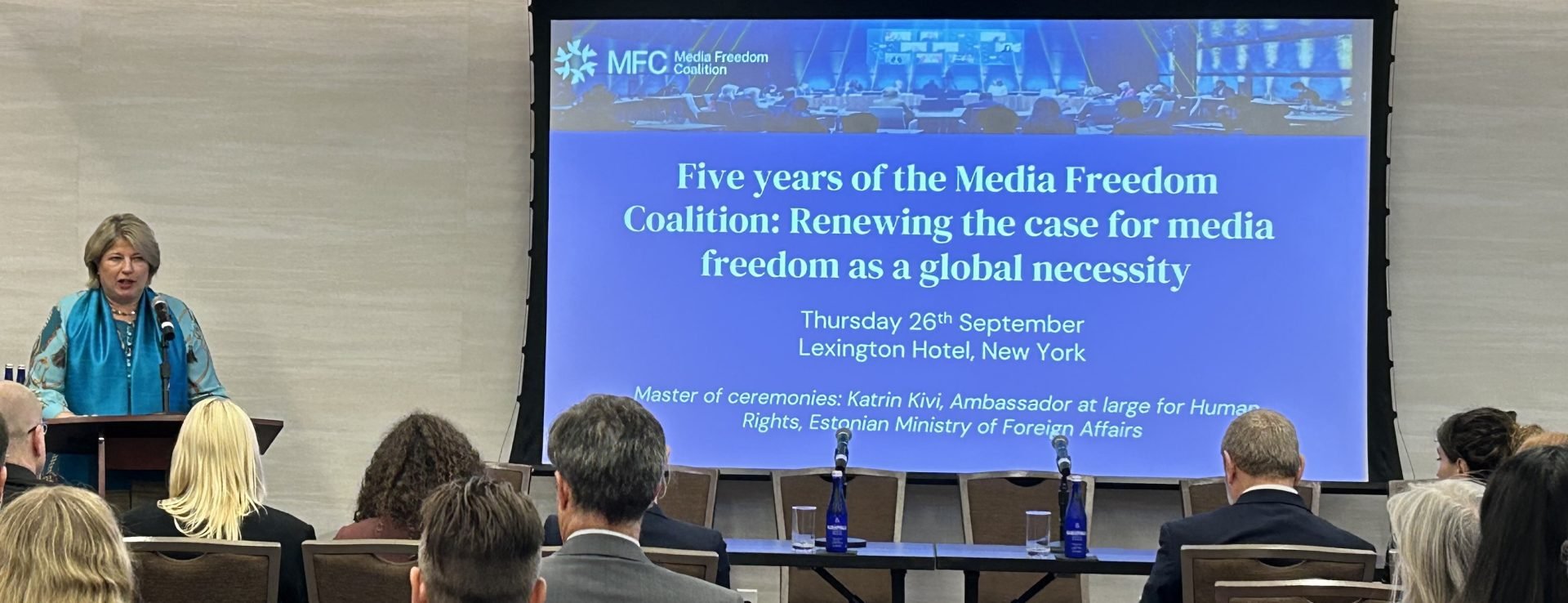
On September 26, 2024, the MFC held a 5th anniversary event in New York to take stock of the MFC’s progress and redouble states’ commitments to promote press freedom. This event, hosted by MFC co-chairs Estonia and Germany, marked the anniversary as part of UNGA High Level Week 2024.
There have been many important developments over the MFC’s first five years, including the launch and growth of the Embassy Networks Initiative, an expansion of state action on safe refuge for journalists at risk, and closer collaboration with the key stakeholders of the Coalition: the High Level Panel of Legal Experts on Media Freedom and the Consultative Network comprising civil society organisations from across the world. The last five years have also seen impressive achievements from the Global Media Defence Fund, which is administered by UNESCO and supported by MFC member governments.
If due to your cookie settings the video does not appear, please find it on Vimeo.
The event commenced with opening speeches by Ministers and representatives of current and founding co-chairs of the MFC.
Estonian Minister of Foreign Affairs Margus Tsahkna highlighted that, “Free press and independent journalists are under attack globally, journalists and media workers are being harassed, threatened, silenced, imprisoned and, in the most extreme cases, killed.”
He went on to stress that, “A democracy cannot function without freedom of expression and the free fact-based and independent media.”
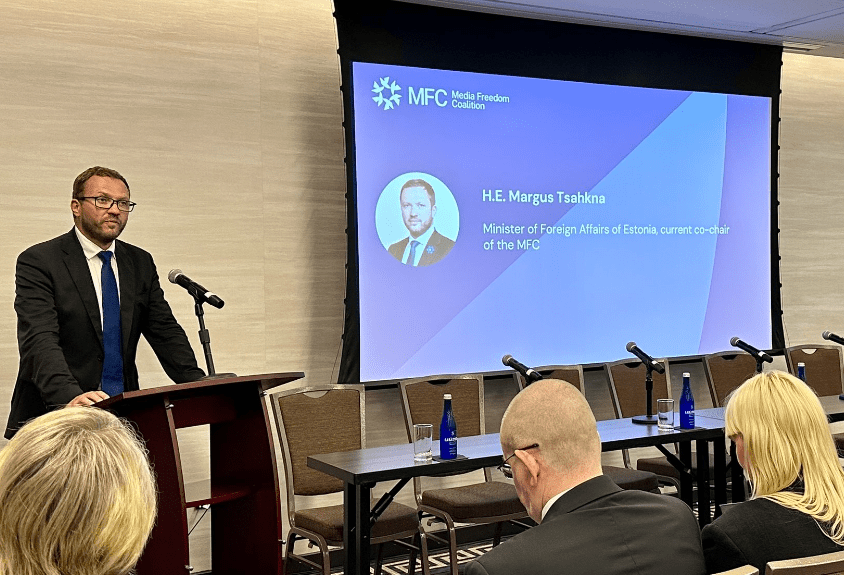
Minister Tsahkna spoke alongside:
- Lord Collins of Highbury, Parliamentary Under-Secretary of State (Africa), Foreign, Commonwealth and Development Office, the United Kingdom.
- David Angell, Political Director and Assistant Deputy Minister, International Security and Political Affairs Branch, Global Affairs Canada.
- Luise Amtsberg, Federal Government Commissioner for Human Rights Policy and Humanitarian Assistance at the Federal Foreign Office of Germany.
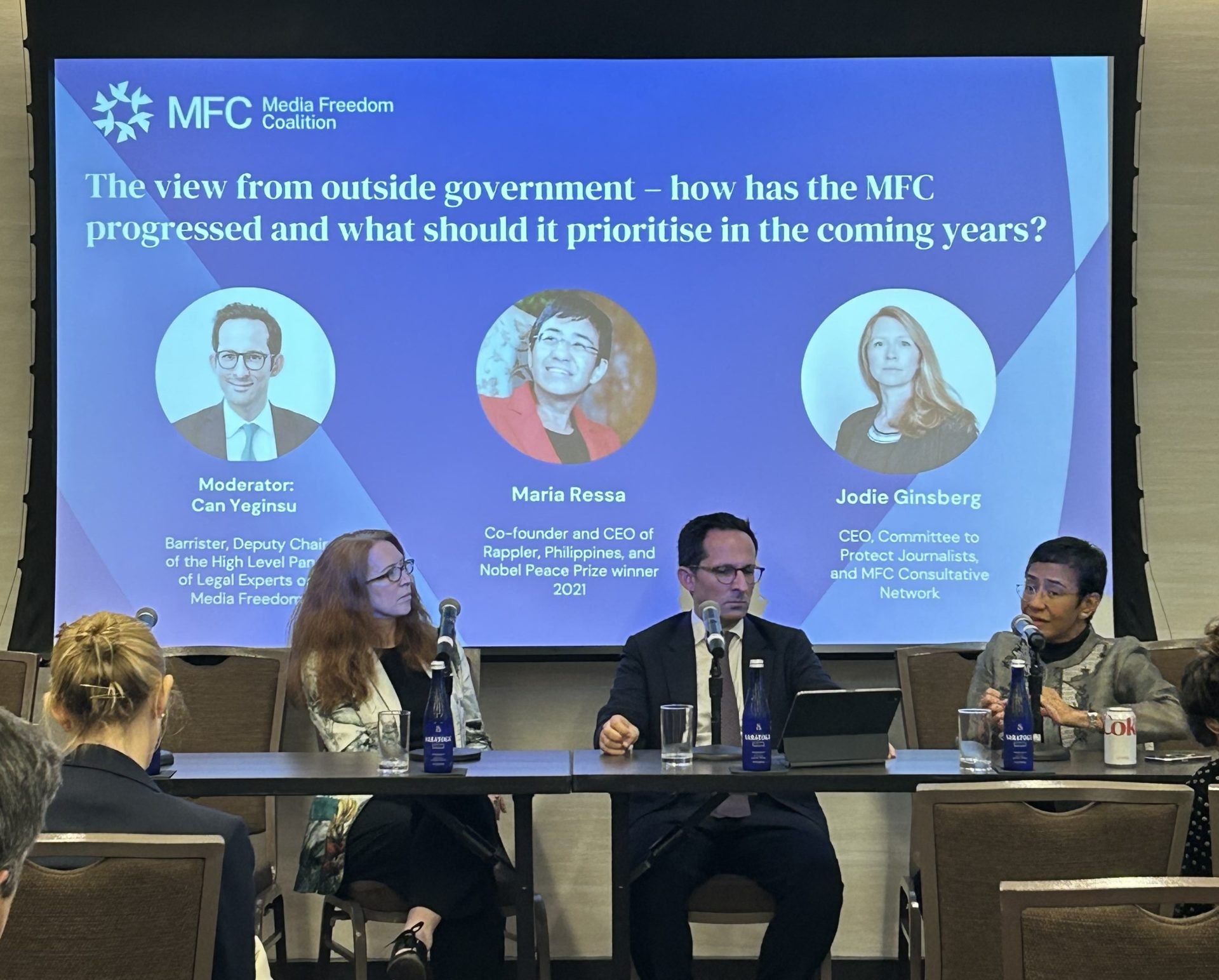
Maria Ressa also called for an end to impunity and for the rule of law to be upheld, adding, “How do you have rule of law if you don’t have integrity of facts?”
Jodie Ginsberg also highlighted the importance of work by embassies, emphasizing how it “can mean the difference between a journalist getting to a a place of safety very quickly and a journalist finding themselves either behind bars or frankly dead, so building capacity within embassies is really vital.”
Why Media Freedom Matters
A report entitled “Why Media Freedom Matters” was published alongside the Coalition’s 5th anniversary.
The report pulled together over 100 pieces of research evidence on the benefits that media freedom brings to society and humanity, focussing on its links to democracy and participation, health, peace and security, the economy and the environment. The report will be distributed across MFC states, including their embassies, to support their work in advocating for media freedom.
For the second half of the event, the MFC held a panel discussion building on the themes raised in the report. The discussion began with a video introduction by the report’s author, Dieter Zinnbauer of Copenhagen Business School (below).
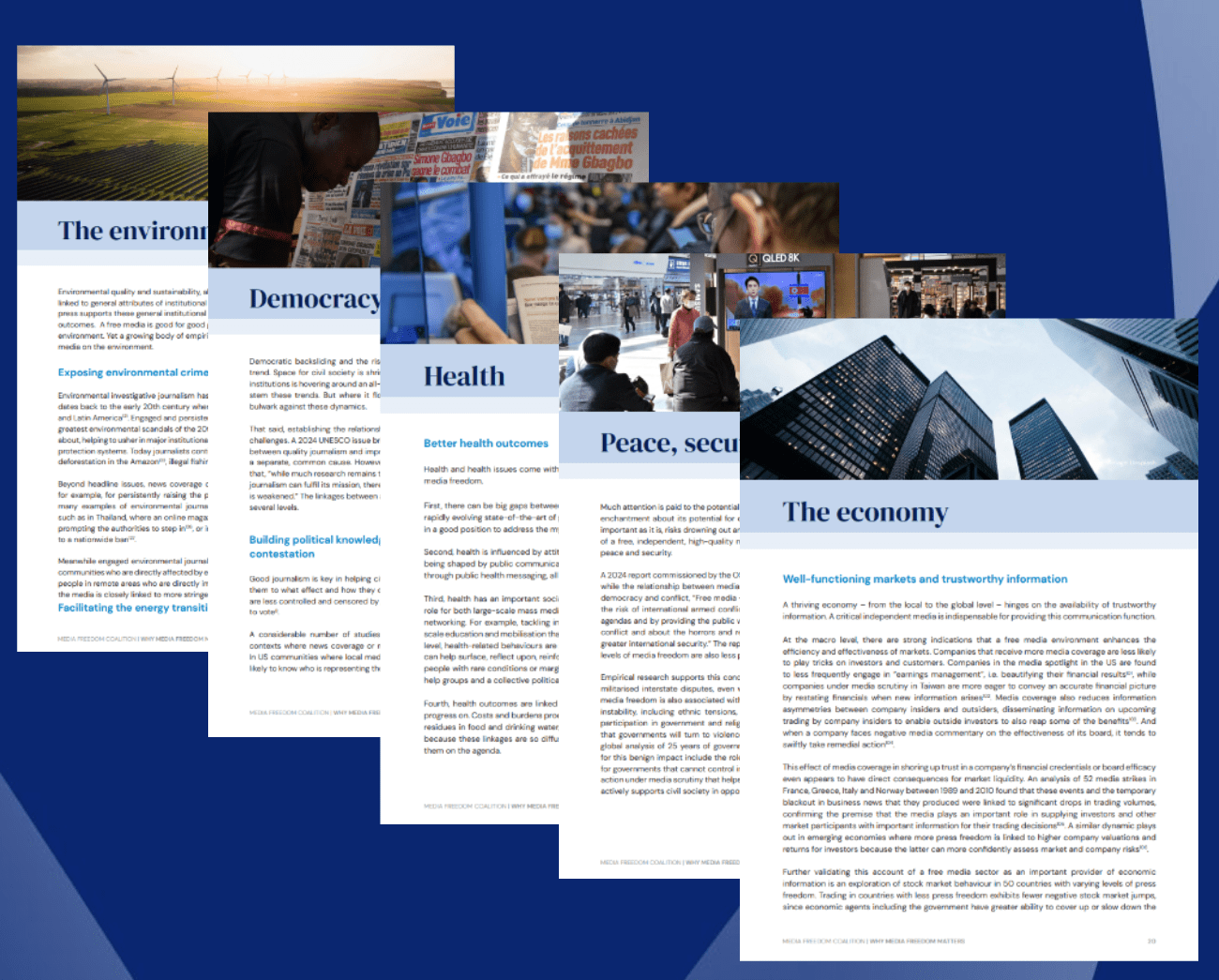
If due to your cookie settings the video does not appear, please find it on YouTube.
- Mark Zellenrath, Director of Multilateral Affairs and Human Rights, Ministry of Foreign Affairs of the Netherlands, former co-chair of the MFC
- Andrea Cairola, Advisor for Communication and Information at the Section for Freedom of Expression and Safety of Journalists, UNESCO
- Catherine Amirfar, Deputy Chair, High Level Panel of Legal Experts on Media Freedom
- Paulina Gutierrez, Head of Protection, Article 19
- Jason McLure, Correspondent, The Examination
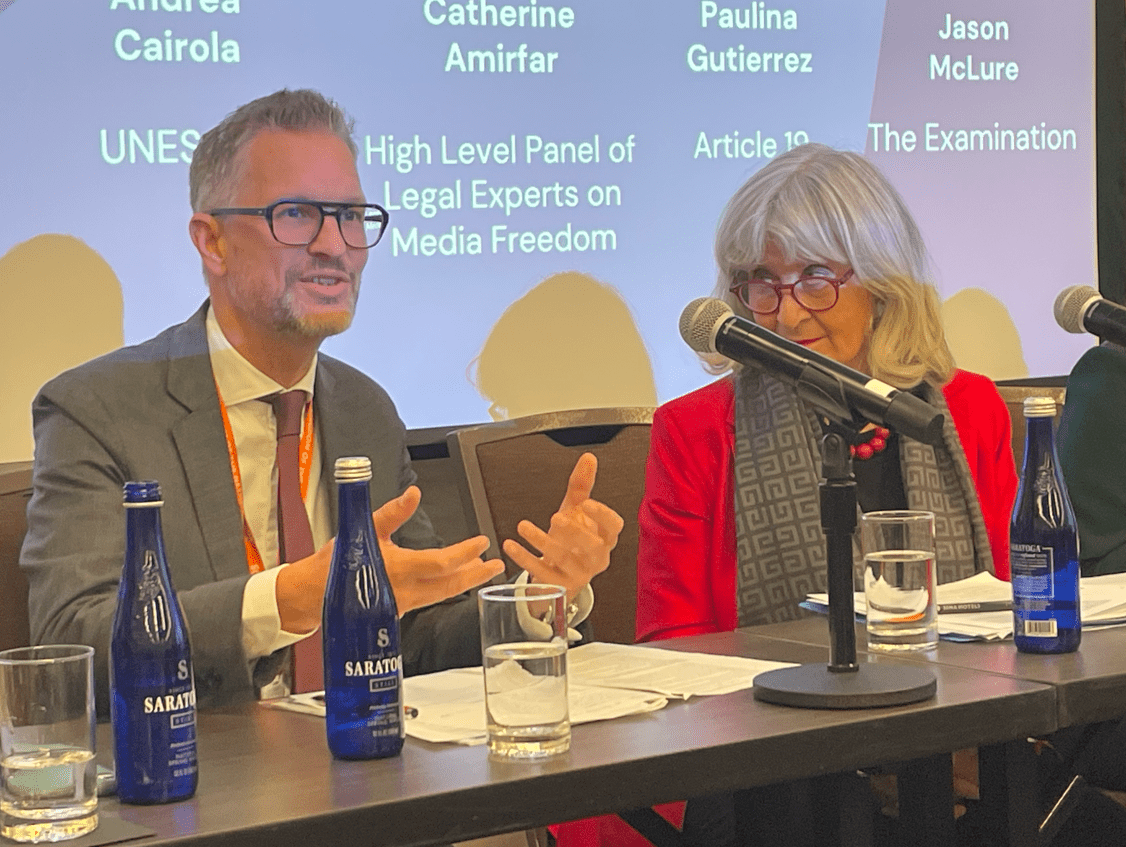
The report highlights how the media acts as a “fourth estate”, emphasising the critical watchdog function of a free media which helps to hold both public and private power to account.
Mark Zellenrath noted that, “If you want to have a discussion about sensitive issues like media freedom, reports like these help in order to broaden the discussion… [governments] need to explain why you’re doing what you’re doing.”
He went on to say that, “We will pass this on to all of our embassies who I think will find it of great use.”
During the discussion, panellists noted that the report doesn’t just focus on media freedom in terms of democracy, but also in terms of health and the economy – issues that touch people’s everyday lives.
Commenting on the question of why media freedom matters, Catherine Amirfar commented: “Five years in, are we still on that? But we have to be prepared to keep answering that question because the goal posts are moving.”
Ms Amirfar added: “What this report does is it attempts to put some empirical meat on those bones and to shift the categorization… its not just about democracy, this public good hits us where we live in every aspect of our lives.”
Closing remarks on the MFC and the Global Media Defence Fund were given by Omar Faruk Osman, Secretary General of the National Union of Somali Journalists, President of the Federation of African Journalists.
